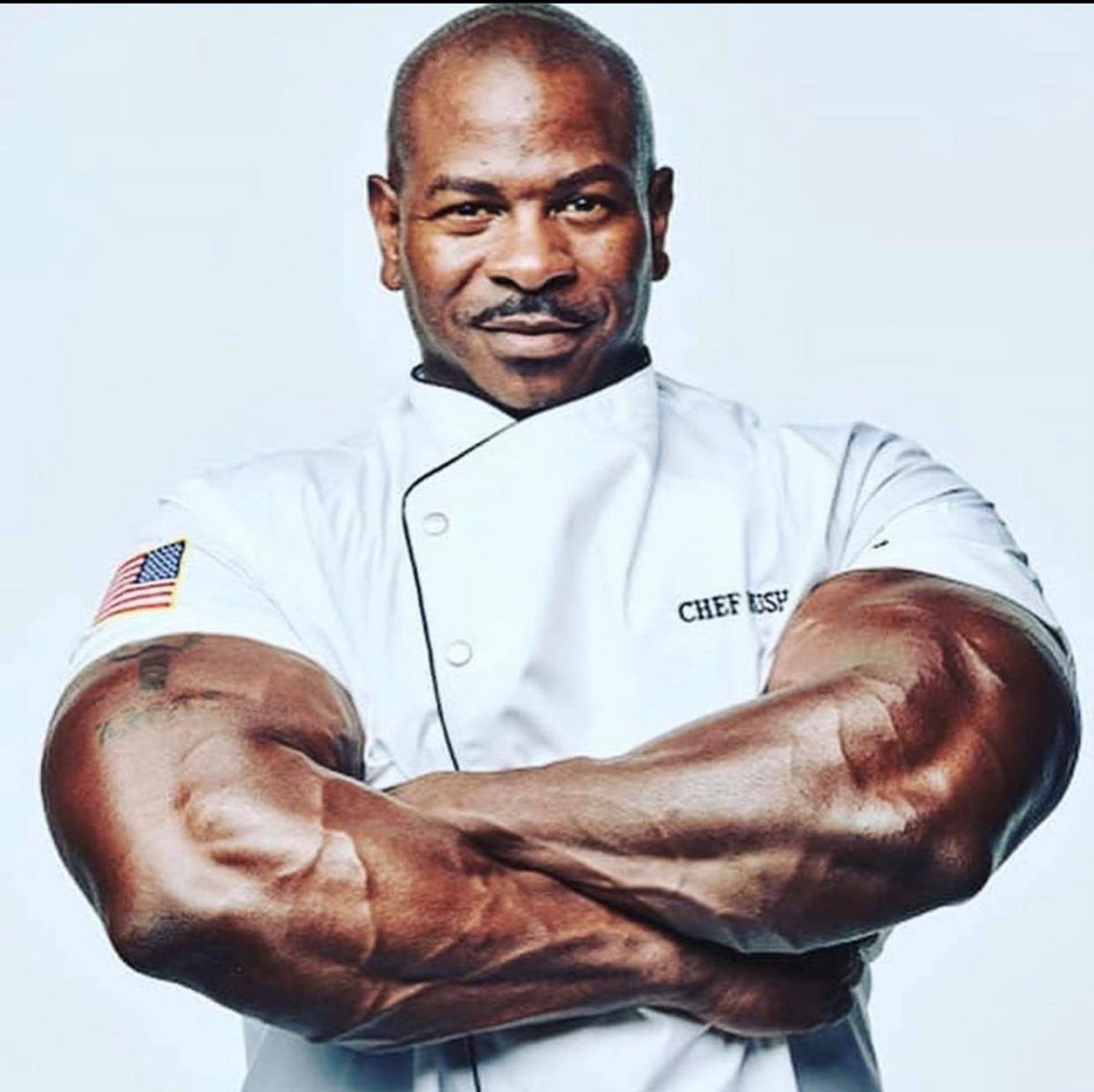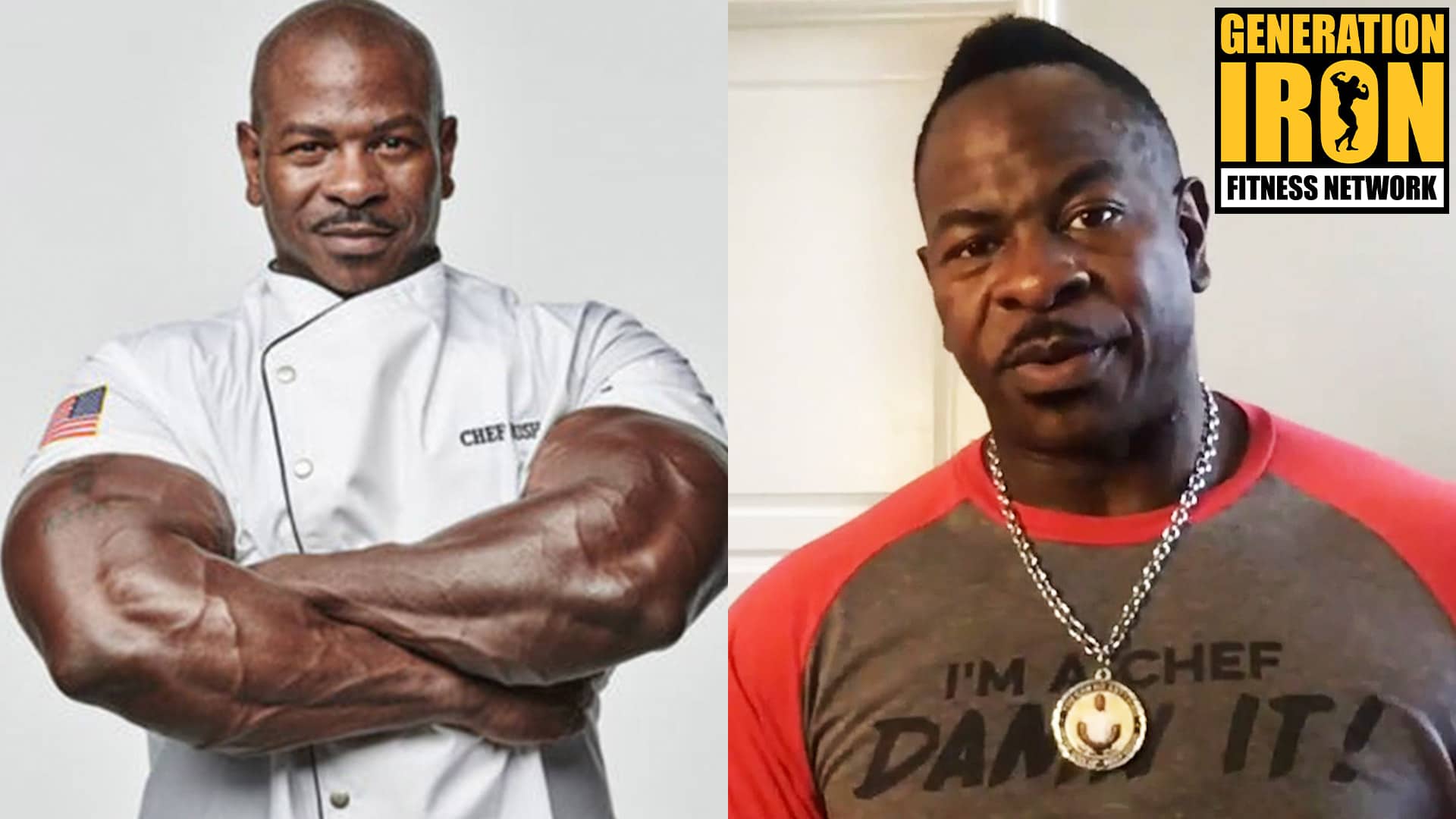The Essential Guide To Chef Rush: Height, Weight, And Performance
Have you ever wondered about the physical demands of being a chef?
Chefs often work in fast-paced, high-pressure environments, which can take a toll on their bodies. In addition to the long hours and physical labor, chefs are also exposed to heat, sharp objects, and other hazards.
As a result, it is not uncommon for chefs to experience injuries, such as burns, cuts, and sprains. They may also develop chronic health conditions, such as obesity, heart disease, and musculoskeletal disorders.
To reduce the risk of these health problems, it is important for chefs to take care of their physical health. This includes eating a healthy diet, getting regular exercise, and getting enough sleep.
Chef Rush Height Weight
Chefs are often known for their quick movements and ability to work in a fast-paced environment. However, this can also lead to health problems, such as obesity, heart disease, and musculoskeletal disorders.
- Physical demands: Chefs are required to stand for long periods of time, lift heavy objects, and work in a hot environment.
- Time pressure: Chefs often work under a lot of time pressure, which can lead to stress and unhealthy eating habits.
- Exposure to hazards: Chefs are exposed to a variety of hazards, such as heat, sharp objects, and chemicals.
- Unhealthy lifestyle: Chefs often have an unhealthy lifestyle, which can include smoking, drinking alcohol, and eating unhealthy foods.
- Lack of sleep: Chefs often work long hours and may not get enough sleep.
These factors can all contribute to health problems for chefs. It is important for chefs to take care of their physical and mental health by eating a healthy diet, getting regular exercise, and getting enough sleep.
Physical demands
The physical demands of being a chef can take a toll on their health, including their height and weight. Standing for long periods of time can lead to foot pain, leg pain, and back pain. Lifting heavy objects can lead to muscle strains and sprains. Working in a hot environment can lead to dehydration and heat exhaustion.
In addition, the physical demands of being a chef can make it difficult to maintain a healthy weight. Chefs often have to work long hours, and they may not have time to eat healthy meals. They may also be tempted to eat unhealthy foods, such as sugary drinks and processed snacks, to give them a quick burst of energy.
It is important for chefs to be aware of the physical demands of their job and to take steps to protect their health. They should wear comfortable shoes and clothing, and they should take breaks throughout the day to rest their feet and back. They should also make sure to eat healthy meals and snacks, and they should stay hydrated by drinking plenty of water.
Time pressure
The fast-paced, high-pressure environment of a kitchen can take a toll on a chef's physical and mental health. Time pressure can lead to stress, which can in turn lead to unhealthy eating habits. Chefs who are stressed may be more likely to skip meals, eat unhealthy snacks, or overeat.
- Facet 1: Stress-induced eating
When chefs are stressed, they may be more likely to eat unhealthy foods as a way to cope with stress. This can lead to weight gain and other health problems.
- Facet 2: Skipping meals
Chefs who are under a lot of time pressure may skip meals in order to save time. This can lead to low blood sugar levels, which can cause fatigue, irritability, and difficulty concentrating.
- Facet 3: Unhealthy snacks
Chefs who are short on time may be more likely to eat unhealthy snacks, such as chips, candy, or soda. These foods are high in calories and unhealthy fats, and they can contribute to weight gain and other health problems.
- Facet 4: Overeating
Chefs who are stressed or tired may be more likely to overeat. This can lead to weight gain and other health problems.
It is important for chefs to be aware of the connection between time pressure and unhealthy eating habits. By taking steps to manage stress and make healthy choices, chefs can reduce their risk of developing weight problems and other health conditions.
Exposure to hazards
The fast-paced, high-pressure environment of a kitchen can expose chefs to a variety of hazards, including heat, sharp objects, and chemicals. These hazards can have a significant impact on a chef's physical and mental health, including their height and weight.
For example, exposure to heat can lead to dehydration and heat exhaustion. Dehydration can cause fatigue, dizziness, and headaches. Heat exhaustion can cause nausea, vomiting, and muscle cramps. In severe cases, heat exposure can lead to heat stroke, which can be fatal.
Exposure to sharp objects can lead to cuts, lacerations, and punctures. These injuries can be painful and may require medical attention. In severe cases, sharp objects can cause serious injuries, such as nerve damage or tendon damage.
Exposure to chemicals can lead to a variety of health problems, including respiratory problems, skin irritation, and eye irritation. In severe cases, exposure to chemicals can lead to cancer or other life-threatening conditions.
It is important for chefs to be aware of the hazards they face in the workplace and to take steps to protect themselves. Chefs should wear appropriate safety gear, such as gloves, aprons, and safety glasses. They should also be trained on how to safely handle hazardous materials.
By taking these precautions, chefs can reduce their risk of developing health problems related to exposure to hazards in the workplace.
Unhealthy lifestyle
The unhealthy lifestyle of chefs can have a significant impact on their height and weight. Smoking, drinking alcohol, and eating unhealthy foods can all lead to weight gain and other health problems.
- Smoking
Smoking cigarettes can damage the lungs and heart, and it can also lead to weight gain. Nicotine, the addictive drug in cigarettes, can increase appetite and slow down metabolism.
- Drinking alcohol
Drinking alcohol can also lead to weight gain. Alcohol is high in calories, and it can also interfere with the body's ability to burn fat.
- Eating unhealthy foods
Chefs who eat unhealthy foods are more likely to be overweight or obese. Unhealthy foods are often high in calories, fat, and sugar, and they can contribute to weight gain and other health problems.
It is important for chefs to make healthy lifestyle choices in order to maintain a healthy weight and reduce their risk of developing health problems.
Lack of sleep
Chefs often work long hours, which can make it difficult to get enough sleep. Sleep is essential for good health, and a lack of sleep can have a negative impact on a chef's physical and mental health, including their height and weight.
- Facet 1: Fatigue and impaired decision-making
When chefs are tired, they may be more likely to make mistakes, which can lead to injuries. They may also be more likely to make poor decisions, such as skipping meals or eating unhealthy foods.
- Facet 2: Increased risk of obesity
Studies have shown that people who do not get enough sleep are more likely to be obese. This is because sleep deprivation can lead to changes in hormone levels, which can increase appetite and cravings for unhealthy foods.
- Facet 3: Decreased metabolism
Sleep deprivation can also lead to a decrease in metabolism, which can make it harder to lose weight.
- Facet 4: Increased risk of chronic diseases
People who do not get enough sleep are also more likely to develop chronic diseases, such as heart disease, diabetes, and stroke. These diseases can all lead to weight gain and other health problems.
It is important for chefs to get enough sleep in order to maintain a healthy weight and reduce their risk of developing health problems.
FAQs about "chef rush height weight"
This section provides answers to frequently asked questions about the physical demands, health risks, and lifestyle challenges faced by chefs.
Question 1: What are the physical demands of being a chef?
Chefs are required to stand for long periods of time, lift heavy objects, and work in a hot environment. This can lead to physical problems such as foot pain, leg pain, back pain, muscle strains, and sprains.
Question 2: What are the health risks associated with being a chef?
Chefs are at risk of developing a variety of health problems, including obesity, heart disease, musculoskeletal disorders, and mental health problems. This is due to the physical demands of the job, the time pressure, the exposure to hazards, and the unhealthy lifestyle that many chefs adopt.
Question 3: What are the lifestyle challenges faced by chefs?
Chefs often work long hours, which can make it difficult to maintain a healthy lifestyle. They may also be tempted to eat unhealthy foods, smoke, and drink alcohol to cope with the stress of the job.
Question 4: What can chefs do to reduce their risk of health problems?
Chefs can reduce their risk of health problems by eating a healthy diet, getting regular exercise, getting enough sleep, and managing stress. They should also wear comfortable shoes and clothing, and take breaks throughout the day to rest their feet and back.
Question 5: What are the benefits of being a chef?
Despite the challenges, there are also many benefits to being a chef. Chefs have the opportunity to be creative, work with food, and make people happy. They can also earn a good living and have a sense of accomplishment.
Question 6: What is the future of the chef profession?
The future of the chef profession is bright. The demand for chefs is expected to grow in the coming years, as more and more people eat out. Chefs will also continue to play an important role in the food industry, as they are responsible for creating new and innovative dishes.
Summary: Being a chef is a demanding profession, but it can also be very rewarding. Chefs play an important role in the food industry, and they have the opportunity to be creative, work with food, and make people happy.
Transition to the next article section: The next section of this article will provide tips for chefs on how to stay healthy and avoid the health risks associated with their profession.
Conclusion
Chefs play an important role in the food industry, but their profession can also be demanding and hazardous. They are at risk of developing a variety of health problems, including obesity, heart disease, musculoskeletal disorders, and mental health problems. However, by taking steps to eat a healthy diet, get regular exercise, get enough sleep, and manage stress, chefs can reduce their risk of these health problems.
The future of the chef profession is bright. The demand for chefs is expected to grow in the coming years, as more and more people eat out. Chefs will also continue to play an important role in the food industry, as they are responsible for creating new and innovative dishes.



Detail Author:
- Name : Dr. Aimee O'Kon PhD
- Username : bbruen
- Email : orlando.wisozk@gibson.com
- Birthdate : 1990-12-02
- Address : 5543 Ayden Gardens Apt. 045 East Oran, ME 97598
- Phone : 1-984-408-0814
- Company : Carter, Murray and Torp
- Job : Gaming Manager
- Bio : Voluptatem aliquam a blanditiis eum possimus tempora quasi. Ut commodi quo quas eveniet aut.
Socials
tiktok:
- url : https://tiktok.com/@kasandra.grimes
- username : kasandra.grimes
- bio : Nostrum iste incidunt non numquam. Minus in alias et quia.
- followers : 5968
- following : 307
facebook:
- url : https://facebook.com/kasandra_grimes
- username : kasandra_grimes
- bio : Consequuntur ad ipsam nobis recusandae nam qui corporis.
- followers : 2594
- following : 2797
twitter:
- url : https://twitter.com/kasandra.grimes
- username : kasandra.grimes
- bio : Earum ipsam cupiditate adipisci autem eaque asperiores totam ut. Quos perferendis incidunt alias et non. Rerum adipisci dolore labore qui.
- followers : 431
- following : 769
instagram:
- url : https://instagram.com/kasandra.grimes
- username : kasandra.grimes
- bio : Eligendi consequatur fuga eligendi illo. Voluptas exercitationem voluptas expedita quaerat commodi.
- followers : 4201
- following : 1309